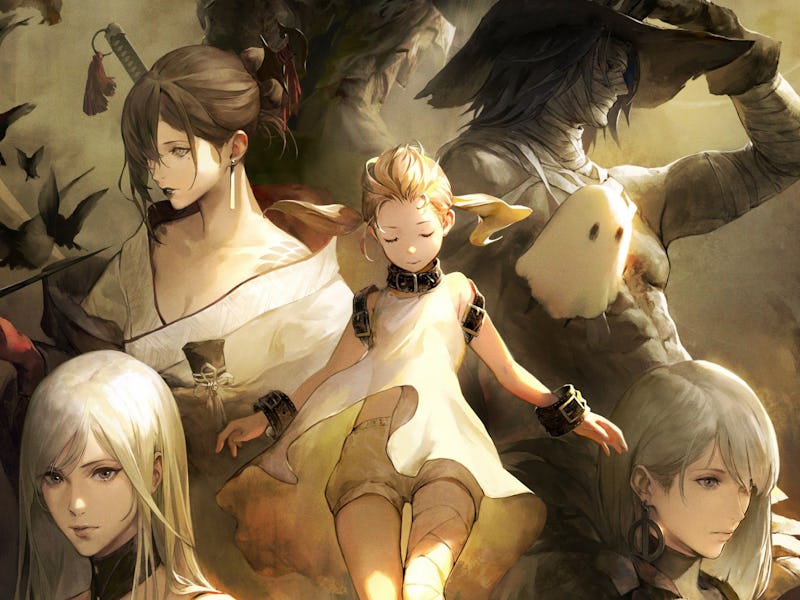A Piece of Yoko Taro’s Nier Series Will Soon Disappear Forever
Nier Reincarnation will soon be lost to time.

We’re about to lose access to a game in the Nier series, and it may be a title you forgot even existed. Launched in 2021, Nier Reincarnation is a free-to-play mobile game set in the universe of Nier and Nier: Automata. As publisher Square Enix recently announced, it’s going offline soon, rendering part of the beloved series inaccessible.
Square Enix did not immediately respond to Inverse’s request for comment.
Square Enix announced the move in a Tuesday blog post. Nier Reincarnation will receive its final story update on March 28 before shutting down for good on April 29, according to the statement. “Until the end of service,” Square Enix writes, “we will continue to add content and characters, as well as hold various events and campaigns, so we hope you will continue to enjoy Nier Reincarnation until the end.”
Nier Reincarnation will continue to get updates until its closure this April.
As a consolation for current players or anyone who jumps in while they still can, Nier Reincarnation will begin offering free items and character summons, plus increased rewards for completing content, until the game goes offline.
But while that will help players see more of the game before it goes away, it also highlights a bigger problem within video games. Since Nier Reincarnation, like any gacha game, requires a constant connection to its server to function, the game isn’t just ceasing updates on April 29, it’s effectively disappearing. Preservation is a pressing issue for games, where there’s often no legal way to play a game once it’s more than a generation old or stops receiving support from its developer. And unlike single player games, an always-online game like Nier Reincarnation can’t even be accessed through dubiously legal means once it shuts down.
Always-online games like Nier Reincarnation are at risk of disappearing completely without continued publisher support.
Like other gacha games, Nier Reincarnation lets players spend real money to buy in-game currency that’s used to unlock new items and characters. It’s an ephemeral exchange from the start, with money being traded for just the chance at the in-game item you want, and when such a game goes away, it only highlights the strange relationship between player and game. It’s bad enough when you buy a game that can no longer be played, but putting money in a virtual slot machine to obtain in-game items that will soon be inaccessible somehow feels even worse.
Nier Reincarnation raises even more concerns, since it’s currently the latest entry in a popular series that’s due for a sequel at some point. While it’s not a direct continuation of Nier: Automata, it does feature crossovers with some of its characters.
In an interview with 4Gamer, translated on social media by Genki, series producer Yosuke Saito said he and creator Yoko Taro are working on a new Nier game, but didn’t go into further details. When it does eventually come out, it will be impossible to play the entire series unless Square Enix announces an extremely ambitious plan to make Nier Reincarnation some other way, which would be rare for a mobile game.
Nier Reincarnation’s shutdown leaves a hole in the history of the Nier series.
Also missing from Square Enix’s announcement is an explanation of why Nier Reincarnation is ending now. Data from Appmagic, which tracks mobile game performance, shows its revenue plummeted after a successful launch that netted the game 15 million players within two months of its worldwide release.
Nier Reincarnation’s closure could also be part of a plan Square Enix president Takashi Kiryu announced in a 2023 financial call, which would see the publisher focusing on a smaller number of games but also releasing games outside of the RPG series it’s known for. If Nier Reincarnation isn’t making much money for Square Enix in the first place, it’s possible that it’s being sacrificed as part of the company’s new direction.
Whatever the cause, the shuttering of Nier Reincarnation is a loss in itself that points to a bigger issue in gaming. When even a game in a beloved Square Enix series is in danger of disappearing from sight forever, it shows that no title is truly safe from being forgotten until publishers get serious about video game preservation.
This article was originally published on